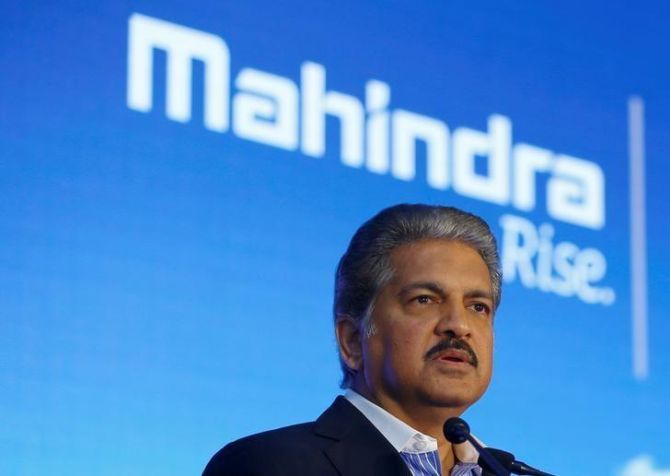'Family businesses have to put competent people in charge who believe they can get to the top.'
'If you don't remove the glass ceiling, you won't get the best talent.'

'My whole style is to gradually step away and allow for empowerment," Anand Mahindra, chairman of the $21 billion Mahindra group, tells Pavan Lall.
Why have you been stepping away from the group's affairs?
That might be one view; another could be 'he should have left sooner'.
My whole style is to gradually step away and allow for empowerment. Family businesses have to put competent people in charge who believe they can get to the top. If you don't remove the glass ceiling, you won't get the best talent.
I'm not vanishing and I'm there for anyone to tap. Of course, you cannot assume all my experiential wisdom is positive.
You've missed out on the small SUV, and M&M's market share largely contracted. Would that have been different if you were more plugged in?
It would be a stretch to presume that these misses happened because of my pulling away. You have hits and you have misses.
It's up to a board to decide if the hits are more than the misses. There is no executive who will have only hits. I think the outcomes are unrelated.
Also, while we missed the first mover advantage we did make up with the XUV 300.
Everyone needs to step away from their firms at some point, and allow different structures and people to grow. Mahindra doesn't want to be patriarchal and we want to buck the trend.
As the Indian corporate landscape evolves, how do you see the Mahindra conglomerate model adapting in the next decade?
I wish there was a better word and the difference is a technical one. A conglomerate by definition is a grab-bag of businesses under the same legal entity.
We are one holding company that owns stocks in other firms. So, we are not a conglomerate, we are a federation.
We are both like a holding company and a PE (private equity) company incubating some businesses and as for a federation the goal is to value-create going by listing our companies.
You said the group was like an enlightened or adventure capitalist that had transitioned to an aggressive PE-style player. What is it now?
We are not simply a PE player because they claim to have synergies but never really do. Whereas what we do is each of our companies that we incubate and list and invest in has a strong corporate centre that truly synergises them all.
So, what is the role of the head of M&M? It's not just to run an operating business, but to oversee the management of the portfolio company.
But you are still a group. Will the entities that you create be hampered because your goal will be to keep group control?
If that was the goal, we would have never acquired Satyam because it took us below 51 per cent in ownership.
If you look at the number of companies we are in, we will willingly go below 51 per cent if we are creating more market cap overall.
For us, growth is like an entrepreneurial engine.
How do you see the coronavirus outbreak and the global trade friction impacting India?
It should be seen as an unprecedented opportunity because no matter how quickly it is resolved, people will react to how a country like China can be shut down by a biological crisis. And, this is the second time it has happened.
China can't be seen as the only powerhouse in manufacturing and there has been some desultory diversification with places like Myanmar and Vietnam. But India can really take advantage of this.
How would you suggest that happen?
NITI Aayog had floated an idea of creating two large coastal special economic zones on the scale of Guangdong and Shenzhen. These SEZs could become a place for businesses to come to.
If that would have been one of the big ideas in the Budget, it could have been capitalised on.
And India can also become a tourism alternative to China. Tourism is the highest value-added industry.
We have a unique opportunity, but the bulk of the world's tourism is not coming here because of a lack of sanitation.
If agencies can guarantee that, it could change the game.












 © 2025
© 2025